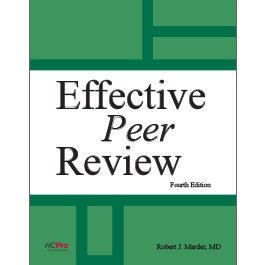Weekly Roundup: Ambulatory Care | | Leadership insight: ASCs and the key to patient satisfaction | | Ambulatory surgery centers (ASC) are very reliant on the ratings of their patients. Below are a few tips to ensure customer satisfaction courtesy of Nicholas Frisch, MD, MBA, an orthopedic surgeon with Ascension Crittenton Hospital in Rochester, Michigan, and Bald Mountain Surgery Center in Lake Orion, Michigan. |
| Free resource: Physician credentialing file checklist for ambulatory facilities | | Navigating appointment processes, with their patchwork of expiration dates and verification expectations, can be difficult for ambulatory facilities, which often lack the dedicated credentialing presence and big-ticket resources of their acute care counterparts. To stay ahead of critical practitioner vetting deadlines, such as privilege expiration dates, consider creating a checklist that accounts for major federal regulations, state laws, and organization-specific circumstances. |
| Quick tip: Review acute care events to identify improvement opportunities | | The movement of care from the inpatient setting and the rise of clinically integrated networks (CIN) have resulted in an increasing need to push the evaluation of physician quality into these new territories. The challenge is to understand how to systematically measure and evaluate physician competency when care is provided outside the hospital or when physicians are accountable to an organization apart from the medical staff. |
| | |
New Content: Members Only | | The parallels between credentialing and homeland security | | Published 2/5/18 It is a truth universally acknowledged that the medical credentialing process is incredibly long and bureaucratic, with massive amounts of repetitive paperwork going to several different agencies with different methodologies, each laboring under the impression that their means of operation is best. The job carries with it a heavy burden of responsibility—thoroughness and credibility are vital when the margin of error is so small. But being overly cautious is not the same as taking the appropriate precautions. Complexity and exhaustivity are not always positives. |
| Getting and sharing relevant data | | Published 2/7/18 One of the biggest challenges facing hospital medical staffs today is obtaining sufficient information to accurately document practitioner competency. It is easy to confirm that a practitioner held a medical staff appointment at a healthcare facility and whether he or she was subject to any disciplinary action, but it can be much harder to obtain relevant practitioner-specific, aggregated data and objective opinions from other facilities. |
| | |
CRC Announcements | | Thank you to our sponsors and exhibitors! | | The Credentialing Resource Center Symposium would like to thank the exhibitors and sponsors that made this year's symposium possible: - ABMS Solutions
- American Board of Physician Specialties
- ConnectMe Solutions
- CredentialMyDoc
- Elsevier
- Expo Enterprises
- PT Research Inc.
- Streamline Verify
- symplr
- The Greeley Company
- Verity
|
| | |
| Product Spotlight | 
Now in its fourth edition, Effective Peer Review has been significantly updated and revised, providing even more practical details and policies to help medical staffs reduce peer review bias and implement an approach focused on performance improvement. This book provides: - Proven techniques to eliminate bias and develop meaningful physician performance improvement
- A detailed guide to creating a dynamic multispecialty peer review committee
- Proven methods for conducting meaningful case review
- Case studies from the field to illustrate key concepts
- A step-by-step guide for peer review self-assessment and redesign
For more information, click here! |
| | |
Contact Us | | Karen Kondilis
Managing Editor
Credentialing Resource Center
kkondilis@hcpro.com
HCPro
35 Village Road, Suite 200
Middleton, MA 01949
800-650-6787
www.hcpro.com For advertising and marketing opportunities with the Credentialing Resource Center, please email dhartley@hcpro.com. | | |
Career Center | | Post your open positions or find your next career move with the HCPro Career Center. | | |
|